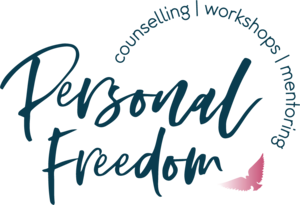
Is there a difference between emotions and feelings?
In our everyday conversations, we tend to use the words interchangeably to describe whatever our current state of being is. And though the terms are linked, they actually refer to two different experiences.
Understanding the difference between what your “emotions” are and how you’re truly “feeling” will give you a deeper understanding of yourself and enable you to communicate with more clarity. This understanding will also help you become emotionally aware, meaning you won’t be ruled by your emotions and will be able to understand those around you.
Allow me to explain further.
What’s the difference between emotions and feelings?
Emotions are reactions we have learnt. These could be responses we’ve inherited from an important figure in our lives, like a parent, sibling or partner. For example, if someone tells you, you look great, your learnt behaviour may have been to look suspiciously for an ulterior motive, instead of accepting and enjoying the compliment.
While emotions are our knee-jerk, immediate response to a situation, our true feelings are our natural reactions. Your feelings reflect what you would really like to do instead of what your knee-jerk reaction is.
Why does identifying your emotions matter?
1. You become aware of your emotional responses
If you’re not in touch with your emotions, it might be difficult to identify what emotional responses you tend to have, and near impossible to understand why you tend to react in that way. And it’s important to understand both of these aspects of your life in order to clearly communicate with those around you.
2. You can practice managing your emotions
When I say “practice managing” your emotions, I don’t mean you can control whether or not you have them.
For instance, you may have learnt from a young age to be distrustful of others. If your partner tells you they don’t want to attend a social event with you, your immediate response might be hurt. You think they don’t want to be seen with you, or don’t want to be with you anymore.
When we stop to see past our emotions, we can respond with our true feelings. Instead of letting our emotions lead us, we might choose to think: “It’s okay, I know parties aren’t really his thing. I trust him and I know that he loves me.”
How to develop emotional awareness
Emotional awareness is the key to understanding yourself better and the first step in developing emotional intelligence. Being more aware of your emotions will help you understand yourself and those around you.
1. Don’t avoid your negative emotions
We might run away from emotions like sadness, anger and fear because we feel negative or overwhelmed. These emotions might affect how we feel about ourselves, and others and impact our mood.
Emotions are complex biological and physiological processes (meaning, we don’t get much say in whether they happen!). So, when they do, your first step is to accept and acknowledge them.
2. Become familiar with your emotions and name what they are
The first step to identifying your emotions is becoming aware of where they’re coming from. Emotions originate in our body, so we might express them through our facial expressions, behaviour, posture, and voice and feel them internally, too.
Understanding our emotions can be confusing. What makes it even more difficult is how similar certain emotions can feel. For example, anger and fear present similarly. Both make our pulse quicken and we might become flushed and unable to think straight.
When this happens, look to your environment for queues. What’s going on around you? What created this feeling? The why can help inform what the emotion is, so you’re able to name it, think it through and take steps to feel differently.
Likewise, when your emotions result in you being defensive about a situation, it is important to identify what the learnt pattern is about and where it stems from. Is this a protection I have put up so I don’t get hurt like I did before? Is this something I have been taught to be defensive about?
3. Know that emotion comes and goes
It is our suggestion that you don’t let your emotions drive your decision-making. Emotions come and go, but your true feelings are a more accurate depiction of your beliefs.
This can be difficult, but identifying the difference between learnt behaviour and how you truly feel about a situation is key to understanding yourself better and leading a more fulfilling life that’s in line with what you want.
